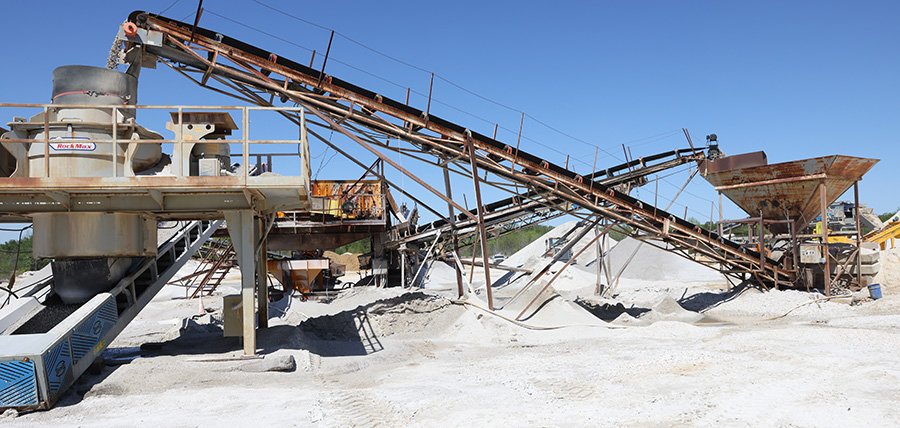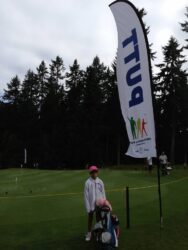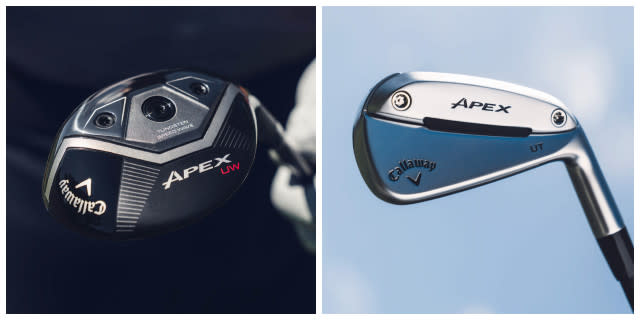Photos by DeWaine Duncan. Feature photo above, The quartz is crushed and washed then loaded into trucks, opposite, and taken to Premier’s bagging plant near the quarry.
Underneath the tall pines and gently rolling hills that make up the Grant County landscape runs a vein of quartz unique to Arkansas.
From the deposit located on the outskirts of Sheridan, Premier Sand & Stone mines, washes and crushes the white rock into bunker sand for golf courses and aggregate materials for swimming pools, ball fields and much more. Its sister company, Turf Materials, distributes bunker sand to 15 states across the country — and there are more on the way — and its pool pebbles are shipped out from coast to coast and beyond.
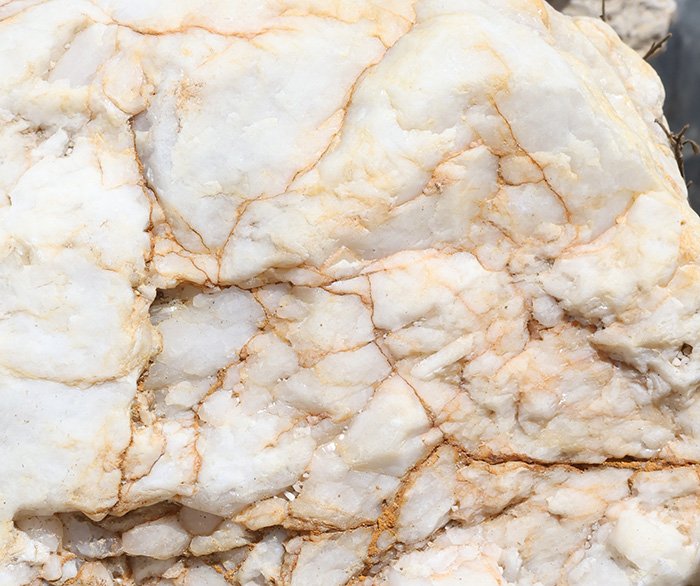
Clients run the gamut from small businesses and resorts, which use the white sand for facilities ranging from artificial beaches to PGA-level golf courses. Premier bunker sand has been laid at Colonial Country Club in Fort Worth, home of the PGA Tour’s Colonial National; TPC Four Seasons and TPC Craig Ranch in the Dallas-Fort Worth metroplex, the latter of which hosts the Byron Nelson Invitational; Memorial Park in Houston, home of the tour’s Texas Children’s Houston Open; and courses designed by Tiger Woods.
In Arkansas, Little Rock’s Chenal Valley and Pleasant Valley country clubs, the latter of which hosted its first PGA Champions Tour playoff stop in April, feature bunker sand mined from the quarries on Premier’s 800 acres. So does the Blessings in Fayetteville, home to the Arkansas Razorback golf teams.
Michael Collins, director of business development and marketing at Turf Materials, said the company ships out more pounds of bunker sand every year. Based in Sheridan, Collins stayed on when the local, family-owned Hayden Group sold its sand and stone business to Coyote Rock based in Texas just north of Dallas but owned by Fordyce native and Ouachita Baptist University alumnus Doug Meador and his wife, Mandy, a Prescott native and former OBU student herself.
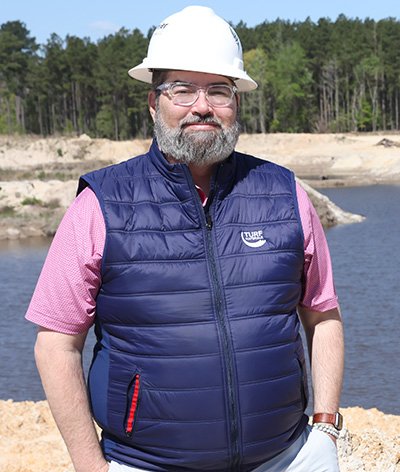
Michael Collins
The Meador-owned Turf Materials was already established as the Hayden distributor when the company was sold in 2023, and Coyote Rock changed the company name to Premier Sand & Stone. Premier is officially headquartered at the quarry just outside Sheridan. Collins said the new owner has invested several millions of dollars in new infrastructure since acquiring the Sheridan operation. The investments include a third blending machine on the way and more crush plants, excavators and loaders, plus the company’s bagging operation is upgrading to robots to ensure a high-quality product in higher quantities, he added.
“Our goal is to make sure our materials are always available,” he said. “By investing several millions of dollars into our plants, this makes us more viable to the market and able to bid jobs farther and farther away while being efficient. We have invested a couple of million dollars in upgrading our bagging line in recent months, and we are waiting for it to come online. This will free us up to do more bagged products and expand our horizon. Robots also give us the versatility to produce and commit to producing more materials.”
Hayden Group founder Darrell Hayden, Collins’ father-in-law, knew he had something special brewing in the sand market before the company was sold, Collins said, and working with Turf Materials helped expand the company’s reach.
“We have worked with every top contractor in the country and have worked with every top golf course architect in the world,” he said. “In Arkansas, we provide sand to all the top golf courses. Our first customers included Chenal Valley and the Blessings — talking about starting out at the top. As soon as we introduced this sand to the Arkansas market, we knew we had a winner. We were doing the top golf courses that were being built, and then one day, we shipped a load to a club in Dallas, and that changed the direction of the whole company. Once we started hitting the Dallas market, we were grabbing top golf courses. Turf Materials became the first distributor of our sands. We worked directly with Turf Materials to develop more bunker sands, and we continued to grow. We would have never thought all those years ago that Turf Materials’ parent company would ever buy us out.”
Hayden wanted to find a buyer who could invest what was necessary to grow the operation to its full potential, he added. Two years after the sale and with millions of dollars in new investments, Collins said the company still has plenty of room to grow.

“The writing is on the wall. As we continue to grow, we realize that we need to invest in more equipment and more employees,” he said. “While our headquarters now is in Anna, Texas, I would like to think the heart of the company is based in Sheridan. Our bunker sands differentiate us from our competitors by a long shot. We pride ourselves in making some of the best sands on the market today.”
Together, Premier Sand and Turf Materials employ 45 full-time employees in Sheridan and about 75 overall, Collins said. Each of the operation’s trademarked bunker sands — Arkansas Premier White, Arkansas Premier Play, Arkansas Pro Choice — are produced in Sheridan. Other Turf Materials products include the Premier Select brand top dressing, made in Texas, and a new distributorship of COMAND greens-grade organics made with proprietary blends of enzyme-producing microbes at six different sites across the country.
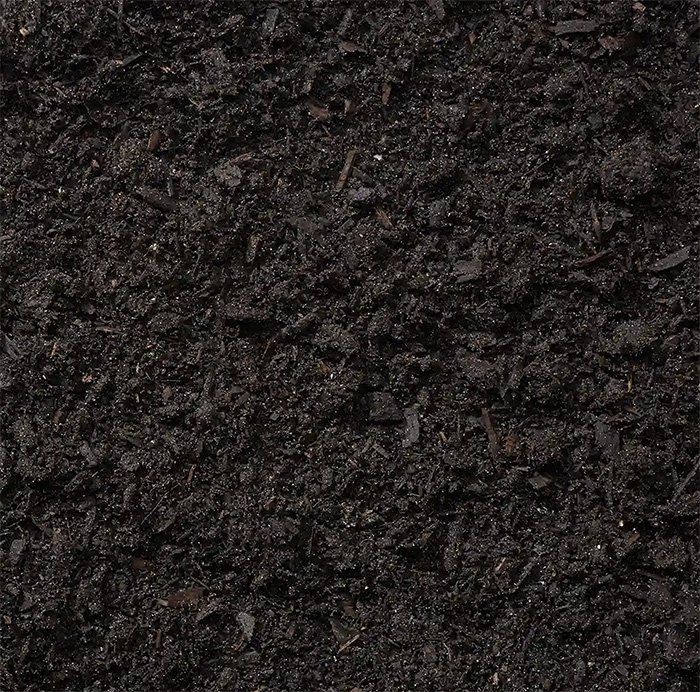
COMAND Turf
Other turf aggregate products include tee and fairway sand; drainage gravel; decomposed granite; top dressings specifically designed for football, baseball, softball and soccer fields; and clay and soil mixes for use in baseball and softball infields and warning tracks, track, equestrian events, and even for sandboxes and playgrounds.
Turf Materials also makes sand used at beach volleyball venues and man-made beaches and lagoons. Though the operation’s products have grown diverse, Collins said Premier’s pool pebbles account for roughly 70 percent of the Sheridan output.
“Since the recession of 2008, not as many new pools are being built, but a lot of folks have 30-year-old pools they need to remodel,” he said.
Originally, the Hayden company was started to supply aggregate liners for swimming pools.
“It just happened to get into the golf business by chance,” Collins said. “Our main product is the 8/16 white rock used in about 75 percent of the aggregate pool liner market. We private label for the largest swimming pool supply business in the world, and we also provide materials to two of the other largest swimming pool aggregate brands.”
The sand produced for golf course bunkers, however, likely has the highest ceiling of the Premier offerings. Meador, who spends much of his time in Sheridan, said Arkansas Premier White, for example, is an angular white bunker sand. Many companies can produce white bunker sand but not an angular sand.
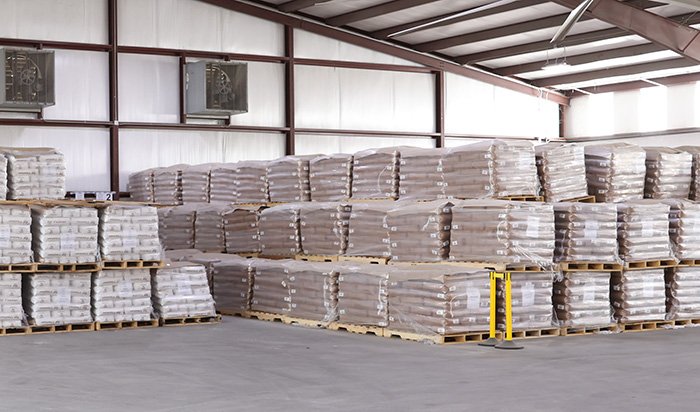
Bags of Arkansas Premier White await distribution in the Premier warehouse.
“Premier White is made from a quartz deposit that is only found in this Arkansas formation,” he said. “The aggregate that we crush runs in veins, similar to the gold rush. Once we mine the white rock, it is washed and then crushed. We then use our internal lab to test the sizing to make sure we meet our specifications. Once a quarter, we send it off to independent labs to be tested to make sure we are maintaining quality. Most jobs require independent testing to start the job out, and then they know we keep an eye on things to make sure they are getting the sand they were promised.
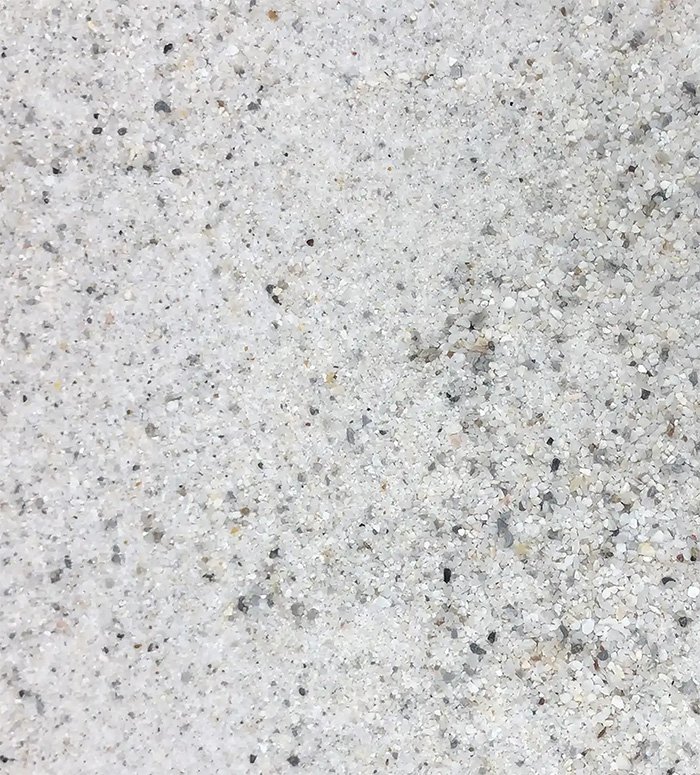
Arkansas Premier White Bunker Sand
“Premier White also withstands washout, has a high penetrometer, can withstand steep faces, and the playability is why the PGA Tour agronomist likes it. It makes for a more consistent shot. It also has a consistent color — we have an agreed-upon color in our lab — and we test that weekly to make sure it meets our high standards.”
He added that different customers like the sand for different reasons, but ultimately, it is a product they all can agree on using. Its popularity has outgrown his company’s ability to produce the sand. That is a good problem to have, of course, and why Coyote Rock invested millions of dollars in Sheridan.
“It has a good name on the golf side of the business,” Meador said. “A lot of times, new customers call with the name of our sand and ask when and how can they get on our list to get it to them. We have been running on a waiting list since we purchased the business. We can’t make the sand fast enough. Some jobs are even planning out years in advance to know they can get this sand. It truly is one of the best sands in the country.”
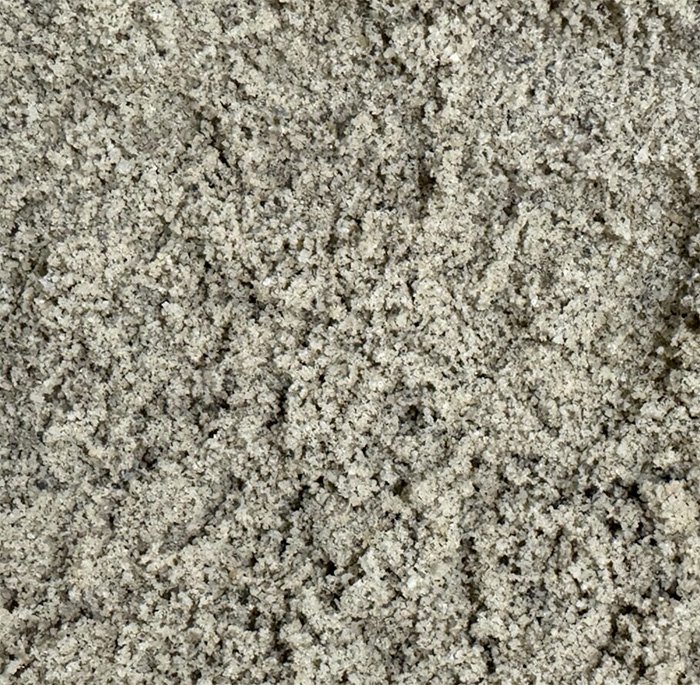
Arkansas Premier Select Sand
The company is also involved in the building and renovation of golf courses. It is a member of the Golf Course Builders Association of America (Collins sits on the national board of directors), the American Society of Golf Course Architects and several chapters of the Golf Course Superintendents Association of America.
For courses undergoing renovation, Premier supplies greens-mix, bunker liner rock, capping sand, bunker sand and “everything else one could use to renovate a golf course,” Collins said.
The company’s latest product offering, COMAND, is a soil amendment that provides micro and macro nutrients that reduce the need for irrigation, can be used year-round, and has built-in nematode suppressant for roundworms and eelworms. COMAND can be used in anything from greens-mix to aerification sand, Collins said. The company recently closed a 15-state deal with LifeSoils to become the product’s main distributor in the central U.S.
“It is like nothing we have seen in the golf course market before,” Meador said. “It has been in use in Florida for several years, and now that [LifeSoils] built us a plant in Austin, we have really started to use that as a springboard into other states. Products like Premier sands and COMAND differentiate us in the golf course market. We are doing what people are used to doing but we are also providing materials no one has used before. We’ve used products like COMAND to continue our growth.”
Under the new ownership, Premier began producing topdressing and greens-mix products in Sheridan under the new ownership. Collins said the new management challenged itself to develop a world-class topdressing.
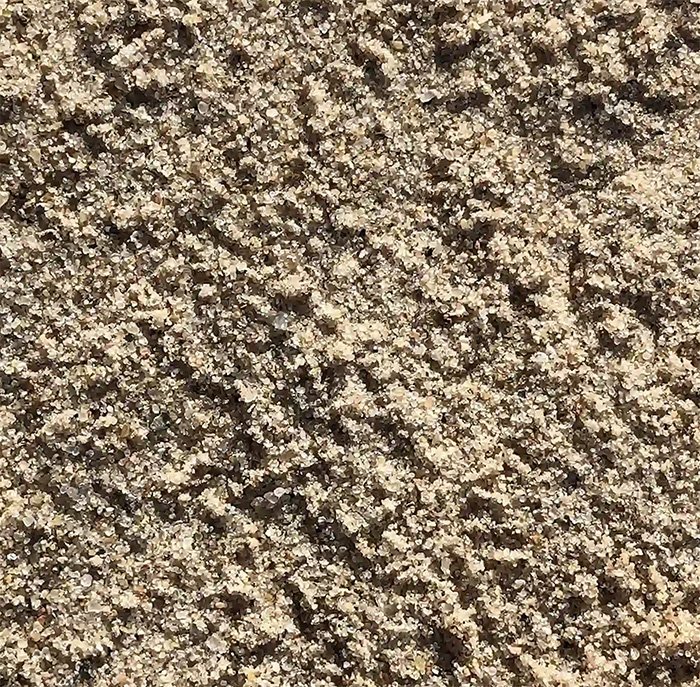
Topdressing Sand
“So far, so good,” he said. “It is 99 percent pure silica, which is important because that means the sand does not break down. Most courses around here use a calcareous sand that breaks down over time, only causing them more headaches. Our sand is nematode free and will not break down. That means a course might be able to go several more years without having to redo their greens, which can be a costly endeavor. It is also a subangular particle, which means the greens will set up firmly. You want a green to drain, grow, set up firmly and play true to grade. Our sand offers those options. Our Premier Select is a great aerification sand due to the particle size distribution. It is semicoarse, and that opens up space near the root zones so that you can get oxygen and water to the rootzone, making for faster, firmer, healthier greens.”
Greens-mix is new to the Sheridan plant, as well, Collins added, though not to Turf Materials, which had already been blending rootzone mixes for some of the top golf courses in Texas, Oklahoma and Louisiana.
“The first course that was done by using our sands out of Sheridan was complicated to say the least,” Collins said. “The client wanted something no one had done before in the region, so they used our Premier White bunker sand and blended it with a local sand. Their design format was to have an angular greens-mix. We achieved the desired goal. When you see the Colonial on the PGA Tour this year, know that its greens is something no one else has.”
Collins said Premier now specializes in hard-to-manufacture greens-mix designs.
“We purchased a blender that is very, very accurate, and we can duplicate a lab-designed blend in the field. We also now have a third blender on the way to give us more capacity. We can not only produce good greens-mix, but we can also produce it fast. It will easily blend a thousand or more tons a day. It is an area of the company in which we have seen great growth and we are really excited about. It gives us the flexibility to take on larger projects and to do them more efficiently.”
The PGA, of course, has exacting standards for its tour courses. Collins said it takes great quality control to develop a sand suitable for the PGA Tour. The sand has to remain consistent — “from the first grain to the last.”
“Our sand meets or exceeds all [United States Golf Association] recommended standards,” he said. “The PGA’s desire for a good sand is that it be angular, play well, not blow away and not wash away during a flood event. We have been blessed to produce a good product and the ability to work with people that recognize a good product when they see one. We have worked with several top golf course architects and superintendents to come up with the winning and very proprietary recipe. It has almost become a status symbol. If Tiger Woods uses it in the golf courses he designs, it must be good sand, right? So we are slowly but surely building a following. Designing a golf course is a sense of artistry.”
One of Premier’s top calling cards is the longevity of its bunker sand, Collins said.
“Our bunker sands don’t have to be replaced as often as some other brands,” he said. “Since the sand is silica, it is hard, and since it is sized out correctly, you are only limited by your budget. Once we get finished with a course, sometimes it will be a couple of years before they order a maintenance load. Since it is angular sand, it does not blow out of place, and you can get by with less maintenance. We have seen guys that go from raking their bunkers every day of the week to two or three times a week, so that saves them a ton of money in labor.”
Collins likened that vein of quartz running under the Grant County terrain to the gold rush of 1849. He said a local man named R.D. Brown found the mineral deposit by accident in the late 1950s or early 1960s and then built a company that mined the quartz to make silica chips and decorative rocks. In the early 1990s, Hayden bought an existing plant on Premier’s current site to make the minerals used for swimming pool liners.
“One of the products you get when producing specialty aggregates for swimming pools is sand,” Collins said, “so they sold some sand but nothing to shake a stick at, but in the early 2000s, they put up a crush plant, which produced more sand, and that is when the bunker sand business took off. By 2007, they had a strong presence in Texas thanks to working with Turf Materials, and it really took off down there.”
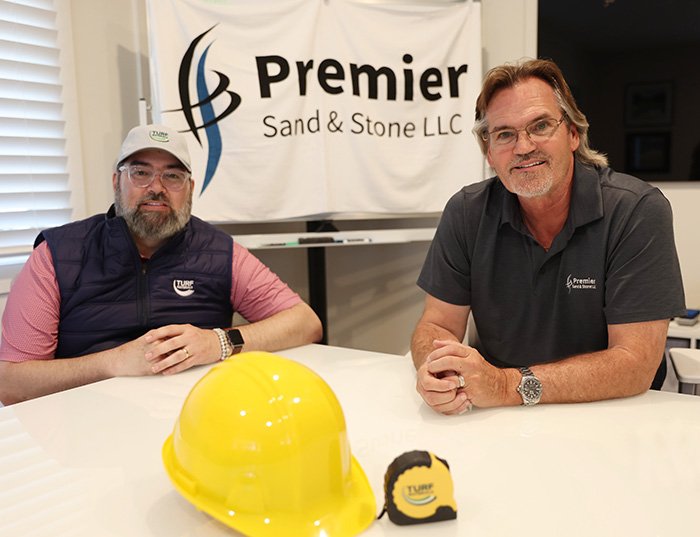
Collins and Meador believe they have just scratched the surface of what’s possible at the Sheridan quarry.
The company has reached even greater heights behind Coyote Rock’s investments. Premier now operates three crushers and one wash plant that produce materials six days a week, and there are robots on their way to the bagging plant to help keep up with demand. Meador said he and his wife are proud that Premier is thriving close to their roots in south Arkansas. Seeing so many Premier bags marked with “Arkansas Natural Quartz Pebble” shipped out across the country is a specific point of pride.
“The next chapter of this book has yet to be written as our outlook is very long term,” he said. “We have years of minerals left in the ground, one of the largest deposits of milky white quartz in the country. Mining this material is not easy and requires significant ongoing investment. We need to sell everything we produce in order to keep the operation viable over the life of the mine.”
Mining at the Sheridan quarry may be easy, but it is reaping dividends.
“Our swimming pool aggregates and golf-sand business is strong and growing,” Meador said. “We sell to many of the largest and best customers in the world. We’ve made a distinct effort to market these materials as natural, Arkansas-sourced. We love Arkansas and are proud to be from Arkansas. To us, Arkansas will always be the Land of Opportunity and the Natural State. Our Premier products give us a chance to show the golf and pool markets a little of what we already know. Sheridan is such a great community to be a part of — we have a great workforce and the ability to grow, grow, grow.”
Timeline of Company Milestones
1989
• Hayden Gravel and Construction in Sheridan established
• First on-site mining launched
• Pool pebble introduced
2001
• Arkansas Premier White and other bunker sands introduced
2002-2007
• Hayden’s first packing plant operates
2016
• Packing plant reopened and company rebranded to the Hayden Group
2023
• Coyote Rock acquires Hayden Group and launches Premier Sand & Stone
• Turf Materials becomes exclusive distributor of Premier Sand line
• High-capacity crusher added, bulk pebble sales for pools reintroduced
• Premier Select golf sand and other specialty soil amendment products introduced
READ ALSO: Highways and High Stakes — Arkansas’ Roadbuilders Pave the Future

